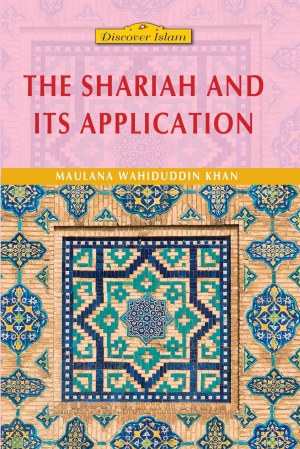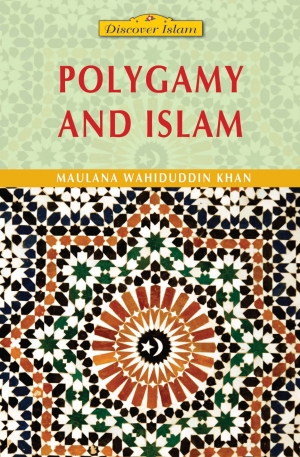One of the commandments given in the Quran as a matter of social organisation concerning polygamy is permission for a man to marry up to four women:
If you fear that you cannot treat orphans fairly, you may marry such women (widowed) as seem good to you: two, three or four of them. However, if you fear that you cannot do justice, marry one only. (4:3)
This verse was revealed after the Battle of Uhud 625 CE, where seventy Muslims were martyred. Suddenly, seventy homes in Madinah were bereft of all male members, and the question arose about how all these widows and orphans were to be cared for. This was an acute social problem. It was solved by the revelation of this verse asking the people who could afford it to take care of the orphans by marrying the widows and keeping their orphaned children under their guardianship.
The background and wording of this verse appear to express a commandment that should be only temporary in effect. That is to say that it applied only to a particular state of emergency when, due to the loss of men in battle, the number of women exceeded the number of available men. However, the Quran, despite having been revealed at a particular time and place, is universal in its application. One of the great characteristics of the Quran is that it describes eternal realities with reference to temporal issues, this commandment being typical of this special quality of the Quran.
From a practical angle, the above commandment of the Quran can be complied with only if that particular situation exists in the society that existed in Madinah after the Battle of Uhud—that is, there is a disproportion in the ratio of men and women. In the absence of such a situation, this commandment of the Quran would be inapplicable. However, studies of human society and its history have shown that the situation in ancient Madinah did not exist only at a particular point in time. It is a situation that has almost always been prevalent throughout the world. That situation of emergency is, in fact, the general situation of humankind. Therefore, this commandment is yet another proof of God's omniscience. His commandment, seemingly elicited by an emergency, became an eternal commandment for the whole of our world under similar circumstances.
Featured Articles
Featured Videos
FAQs
If the commandment to practice polygamy is seen in the abstract, it would appear to be biased in favour of men. But when placed in the context of social organization, it is actually in favour of women. Polygamy is both a proper and a natural solution to women’s problems.
The permission to practice polygamy in Islam was not given in order to enable men to satisfy their carnal urges. It was designed as a practical strategy to solve a particular problem. Marrying more than one woman is possible only when there are more women than men. Failing this, it is out of question. It is inconceivable that Islam, just to satisfy man’s desires, would give us a commandment that is neither possible nor practical.
To have more than one wife is not an ideal in Islam. It is, in essence, a practical solution to a social problem.
Source: Spirit of Islam March 2013
In terms of birth rate, men and women are almost equal in number. But subsequently, for a variety of reasons such as wars, the number of men in society decreases, leaving an excess of women. At such times the choice is not between monogamy and polygamy, but rather, between the lawful polygamy of Islam or the illicit polygamy of non-Islamic people. Such a situation emerged after the Battle of Uhud (3 A.H.) in which 70 Muslims were martyred and their widows and orphans were left without guardianship. At that time the following verse was revealed: ‘If you fear that you cannot deal fairly with orphan girls, you may marry women of your choice, two, three or four; but if you fear that you might not be able to treat them with equal fairness, then only one.’ (The Quran, 4:3) It asked people who could afford it, to take care of the orphans by marrying the widows and keeping their orphaned children under their guardianship. This commandment is only temporary in effect, covering a state of emergency when, due to the loss of men in battle, the number of women exceeded the available men.
Source: Polygamy and Islam
One of the commandments given in the Quran as a matter of social organization concerning polygamy, is permission for a man to marry up to four women:
“If you fear that you cannot treat orphans with fairness, then you may marry such women (widowed) as seem good to you: two, three or four of them. But if you fear that you cannot do justice, marry one only.” (The Quran, 4:3)
This verse was revealed after the Battle of Uhud 625 CE, in which seventy Muslims were martyred. Suddenly, seventy homes in Madinah were bereft of all male members, and the question arose as to how all these widows and orphans were to be cared for. This was an acute social problem. It was solved by the revelation of this verse asking the people who could afford it to take care of the orphans, by marrying the widows and keeping their orphaned children under their guardianship.
The background and wording of this verse appear to express a commandment that should be only temporary in effect. That is to say that it applied only to a particular state of emergency when, due to loss of men in battle, the number of women exceeded the number of available men. But the Quran, despite its having been revealed at a particular time and place, is universal in its application. One of the great characteristics of the Quran is that it describes eternal realities, with reference to temporal issues, this commandment being typical of this special quality of the Quran.
Looked at from a practical angle, the above commandment of the Quran can be complied with only if that particular situation exists in society that existed in Madinah after the Battle of Uhud—that is, there is a disproportion in the ratio of men and women. In the absence of such a situation, this commandment of the Quran would be inapplicable. But studies of human society and its history have shown that the situation in ancient Madinah was not one that existed only at a particular point in time. It is a situation that had almost always been prevalent throughout the world. That situation of emergency is, in fact, the general situation of humankind. This commandment is yet another proof of God’s omniscience. His commandment, seemingly elicited by an emergency, became an eternal commandment for the whole of our world under similar circumstances.
Source: Spirit of Islam March 2019
Chapter 4 of the Quran allows a man to have four wives (4:3). This does not mean that every man should have four wives. This rule is an exception, and not to be taken in a general sense. The general rule is to have only one wife; but in a case of real necessity, a man can have more than one wife.
This need refers to a situation where, by some unfortunate incident, there is disparity between the number of men and women in society. When there are more women than men, there is sexual anarchy. To overcome this inequality, in dire cases, men are allowed to have more than one wife.
The truth is that a natural way of marriage is between one man and one woman. For a man is naturally biased against the second wife in most cases. This suffices to prove that monogamy is the natural way, while polygamy is permitted in exceptional circumstances by the law of necessity. There are exceptional laws of this kind which cover other cases as well. But exceptional laws are exceptional laws, and they cannot be applied in general.
Source: The Sunday Guardian, September 24. 2022









